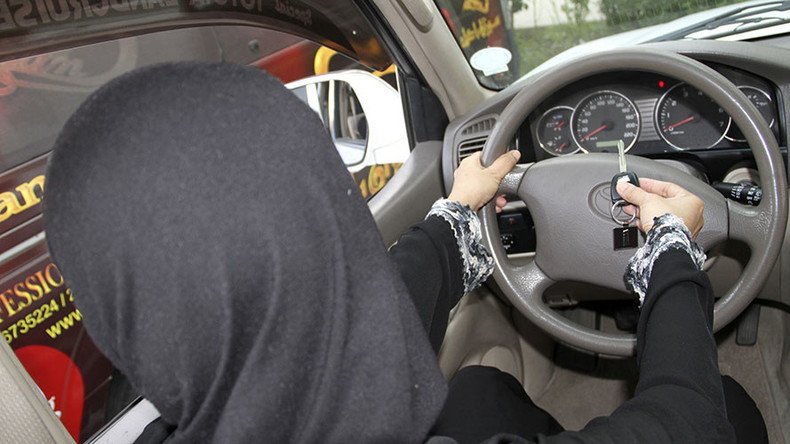‘Much work yet to be done’: Twitter reacts with caution to Saudi move to let women drive

Following King Salman of Saudi Arabia’s decree ordering that women be allowed to drive, many have taken to Twitter to praise the move, but reminding people of its many remaining human rights violations.
The amendments to traffic regulations are expected to come into force on June 24, 2018, much to the delight of female human rights groups who have fought tirelessly for the ‘privilege’ for years.
READ MORE: Saudi King issues decree allowing women to drive
However, the new rules come with their own restrictions that have dulled the “young, dynamic and open society” the Arab country is reportedly attempting to create in that, Saudi women will need permission from their male guardian (usually their husband, father or brother) to obtain a driving licence.
You want a statement here is one: "Saudi Arabia will never be the same again. The rain begins with a single drop" #Women2Drive ❤️
— منال مسعود الشريف (@manal_alsharif) September 26, 2017
Saudi women’s right’s activist, Manal al-Sharif, praised the news on Twitter, writing that the kingdom “will never be the same again”, reminding naysayers that “the rain begins with a single drop.”
A historical & a great moment for women in Saudi... It is certainly a new era 🎉🇸🇦
— نورة الكعبي (@NouraAlKaabi) September 26, 2017
Saudi Arabia is known for its strict segregation of men and women, and its ban against female drivers has long been the thorn in the middle eastern country’s side as it made small efforts towards reform.
READ MORE: Saudi Arabia allows women into sports stadium for 1st time
However, many Twitter pointed out that people can legally still be publically stoned or beheaded in the country for crimes such as adultery.
Oh wonderful! Saudi Arabia now allows women to drive...But they'll still decapitate or stone them to death for being accused of adultery.
— Brigitte Gabriel (@ACTBrigitte) September 26, 2017
what a giant leap forward for equal rights as Saudi Arabia will finally allow women to drive themselves to their stonings
— Matt Oswalt (@MattOswaltVA) September 26, 2017
We are STILL enabling Saudi Arabia's mass murder + starvation for profit in #Yemen. The corporate media blackout is shameful.
— Lee Camp [Redacted] (@LeeCamp) September 26, 2017
I agree it's a encouraging sign, but banning women from driving ranks about 8,349th on Saudi Arabia's list of human rights violations.
— David Burge (@iowahawkblog) September 26, 2017
Saudi Arabia finally lets women drive. Now revoke guardianship laws and stop treating women like children. https://t.co/4dvzmdrwyQpic.twitter.com/oTm96BXRCG
— Kenneth Roth (@KenRoth) September 26, 2017
Huge. However, still a lot more that needs to be done by way of women's rights in Saudi Arabia. https://t.co/zcJDQSHTRB
— Ashley Pratte (@AshPratte) September 26, 2017
There's much work yet to be done for women's rights in Saudi Arabia, e.g. male guardianship. But today's news is great! Let's celebrate it.
— Laila Lalami (@LailaLalami) September 26, 2017












